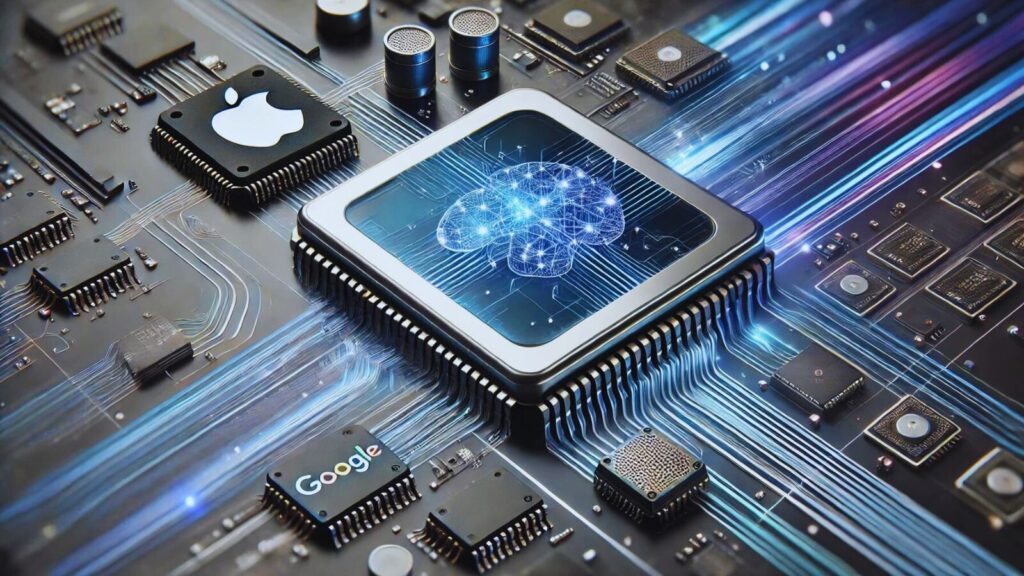Artificial Intelligence has been revolutionizing myriad industries with applications ranging from super apps to chatbots and data analytics. Now, this transformative technology is making its way into our everyday gadgets, making them smarter and more customizable than ever before.
The much-anticipated Apple Worldwide Developers Conference (WWDC) 2024 fully lived up to expectations with a strong focus on AI. One of the groundbreaking announcements was the Apple-OpenAI partnership, which will integrate GPT-4o directly into iOS, connecting seamlessly with Siri. This promises enhanced user experiences through more intelligent and personalized interactions.
“Generative AI can significantly drive the development of more powerful and efficient chipsets. By integrating AI-specific processors or optimizing existing ones to better handle AI tasks, these enhancements lead to overall device performance improvement,” said Souradip Chakraborty, a PhD student at the University of Maryland specializing in Machine Learning, in a discussion with indianexpress.com.
The fruits of these advancements are evident as Apple becomes the first brand to exceed a $1 trillion valuation, marking a 15% increase from the previous year, according to Kantar’s BrandZ global ranking.
But Apple is not alone in this AI hardware race. At Google I/O 2024, the tech giant introduced a slew of AI features such as Gemini-nano, which runs on edge devices and powers the new Pixel 8 Pro. They also showcased Project Astra by Google DeepMind, highlighting their ambitious strides in AI integration.
The Google Pixel 8 exemplifies this trend, leveraging AI to offer real-time language translation, predictive text, and advanced photo editing capabilities. Features like the Magic Eraser, which uses AI to seamlessly remove unwanted objects from photos, create a more refined user experience. Additionally, Google has enabled the Gemini Nano AI model for developers on Pixel 8 and 8a devices and introduced other smart capabilities, such as fall and crash detection on the Pixel Watch 2 and doorbell notifications on the Pixel tablet.
Apple’s iPhone 15 Pro also showcases a sophisticated use of AI, from optimizing battery life to enhancing camera performance. The A17 Bionic chip includes a Neural Engine, capable of performing over 15 trillion operations per second, enabling features like real-time video analysis and personalized user experiences. “Apple’s devices increasingly use AI to improve user interaction. Features like predictive typing, voice recognition, and proactive suggestions are powered by AI, requiring sophisticated hardware integration,” Chakraborty remarked.
Apple CEO Tim Cook emphasized this approach: “Our unique blend of generative AI and personal context offers truly useful intelligence that is private and secure. This is AI as only Apple can deliver it, and we are excited for users to experience its potential.”
AI is also transforming smart home devices. Last year, Amazon revealed new generative AI-powered experiences for Alexa, making the virtual assistant more expressive and human-like. Dave Limp, Amazon’s Senior VP of Devices and Services, told CNN that they aim to use AI “to create this great personal assistant.” Google Nest Hub, on the other hand, uses machine learning to tailor its functions to user routines and preferences, adjusting settings such as lighting and temperature and offering personalized updates.
Wearable technology is another frontier benefiting from AI advancements. Smartwatches now provide advanced health monitoring features like ECG readings, sleep tracking, and irregular heart rhythm detection. Google’s Fitbit Sense, for instance, uses AI to analyze user activity and offer personalized health insights. Apple Watch also leverages Siri for voice commands, and the integration of GPT-4o promises even more innovations.
Generative AI is also giving birth to new types of gadgets. Humane’s upcoming voice-controlled AI Pin and Rabbit’s AI-powered R1 have generated mixed reactions but signify the advent of a new era in AI gadgets. These screenless, wearable assistants offer users instant access to personal information and general knowledge by projecting information onto the user’s palm.
Moreover, Brilliant Labs’ AI-enabled smart glasses and Meta’s Ray-Ban Smart Glasses are noteworthy. These wearable devices promise capabilities like AI translations, web searches, and visual object recognition, bringing “AI superpowers” to the user’s immediate environment.
AI has swiftly transitioned from science fiction to an integral part of our daily lives. By seamlessly integrating into everyday gadgets, AI is redefining how we interact with technology, making our lives smarter, more efficient, and increasingly interconnected.


